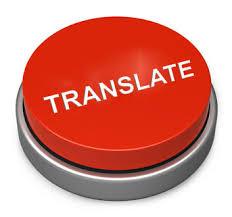Tips on technical Arabic translation
The translation of technical materials between different languages can be one of the most challenging kinds of translation.
Due to my specialisation in translating technical materials from Arabic to English and vice versa, including manuals, leaflets and guidelines, among others, I would like to share some of my personal thoughts, which could be perceived as guiding principles to those have an interest in or have the intention to pursue a career in technical translation.
Knowledge is key
It is necessary for all technical translators to acquire technical knowledge. This is primarily because if one does not have sufficient knowledge regarding technical and technological issues and advancements, the process of translation technical materials between different languages would be virtually impossible.
However, why is it so important to acquire knowledge for the purposes of technical translation? The translation of technical material should not be performed in a direct word-for-word manner; rather, the entire text should be thoroughly read ensuring it has been comprehensively understood prior to transferring it to a different language.
If your technical knowledge and understanding regarding the topic is lacking, the text will represent an isolated and strange written work that you will find challenging to comprehend, and therefore, the translation process will be highly complex.
A particularly important advantage of forming technical knowledge is that it allows the translator to become highly proficient in the terminology and style used in technical writing.
Hence, how can this be achieved? To obtain technical knowledge, it will be necessary for the translator to read books, thoroughly researched media sources, researchers, academic journal articles and essays that focus on or are centred around a technical subject. All this should be preferably done in both the source and target language.
After building a sufficient amount of technical knowledge, your confidence when translating technical materials between the different languages will be significantly increased.
Need for resources
While it is important that all technical translators have extensive technical foundations, they will still require supporting resources in the translation process.
Drawing on my own experience, it is my perception that all technical translators should ideally be able to access three kinds of resources that are relatively beneficial in translating technical materials.
The first such resource that should be available is specialised dictionaries. As this can vary depending on the particular language, the researcher will be required to perform their own research to determine the most suitable technical dictionary for their aims. This can certainly be achieved by reviewing user feedback, comments and evaluations posted online or you could simply consult your senior co-workers or peers in the translation community.
After determining the dictionaries that will be provide the greatest benefits, it will then be necessary to acquire them either in physical form, access them virtually or download them to your computer.
The next beneficial resource is technical glossaries. There are numerous such resources on the Internet, which can provide considerable assistance to all technical translators.
The last resource is Google Translate. This may seem to be a questionable approach and you should certainly not depend on it for your translations. However, the positive aspect of Google Translate is that it can often translate particularly complicated technical terminology that may have required an extensive and time-consuming search using different resources.
Google is a highly beneficial and convenient resource when translating texts containing highly complicated technical words and phrases.
Questioning and research
I believe that it is of significant importance that one questions when translating technical material, and I will explain my reasoning for this below.
Online web forums are available that provide the opportunity to seek answers to translation-related questions, and many forum members frequently engage in discussions regarding the most suitable translation for particular words.
However, judging by my experience of such forums, the answer that it is classified by the forum moderators as “the best” often does not represent the most precise translation of the original word and can sometimes even be mistranslated.
Thus, my recommendation for any technical translator is that he or she MUST always question and perform suitable research when confronted with a term they find challenging to translate, and the advice provided on such forums should not be taken for granted.
Technology
When translating technical materials, you will discover that you will frequently encounter the same words and phrases within the material that requires translation, which means that the utilisation of software like Trados will undoubtedly be highly beneficial.
To provide more information about Trados, it is a computer-assisted translation tool and translation memory software that provides specific features that increase the speed and convenience of the translation process.
Mohamed Ibrahim is a current translator with the Arabic to English translation services provider Loghat Arabic Translation.

